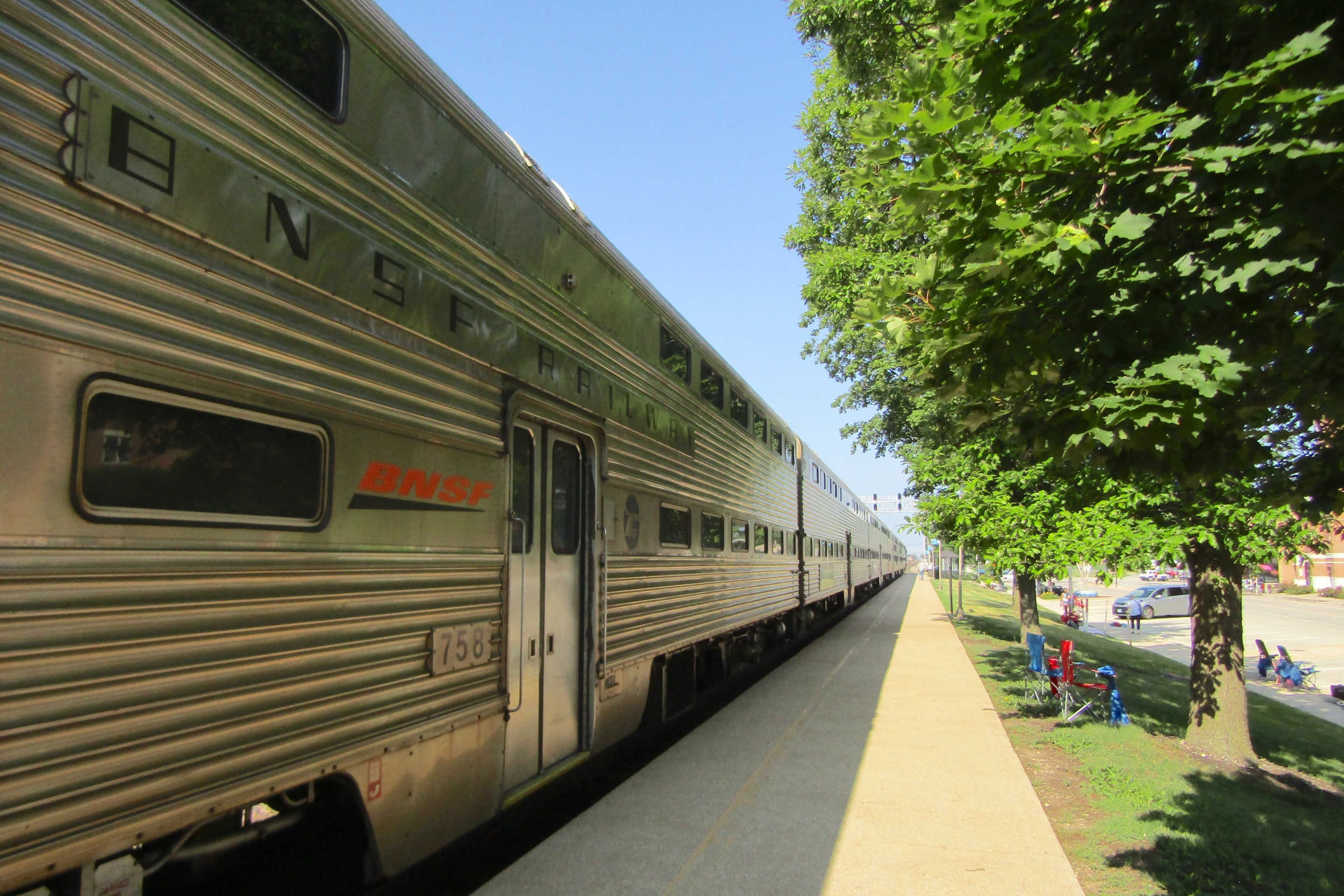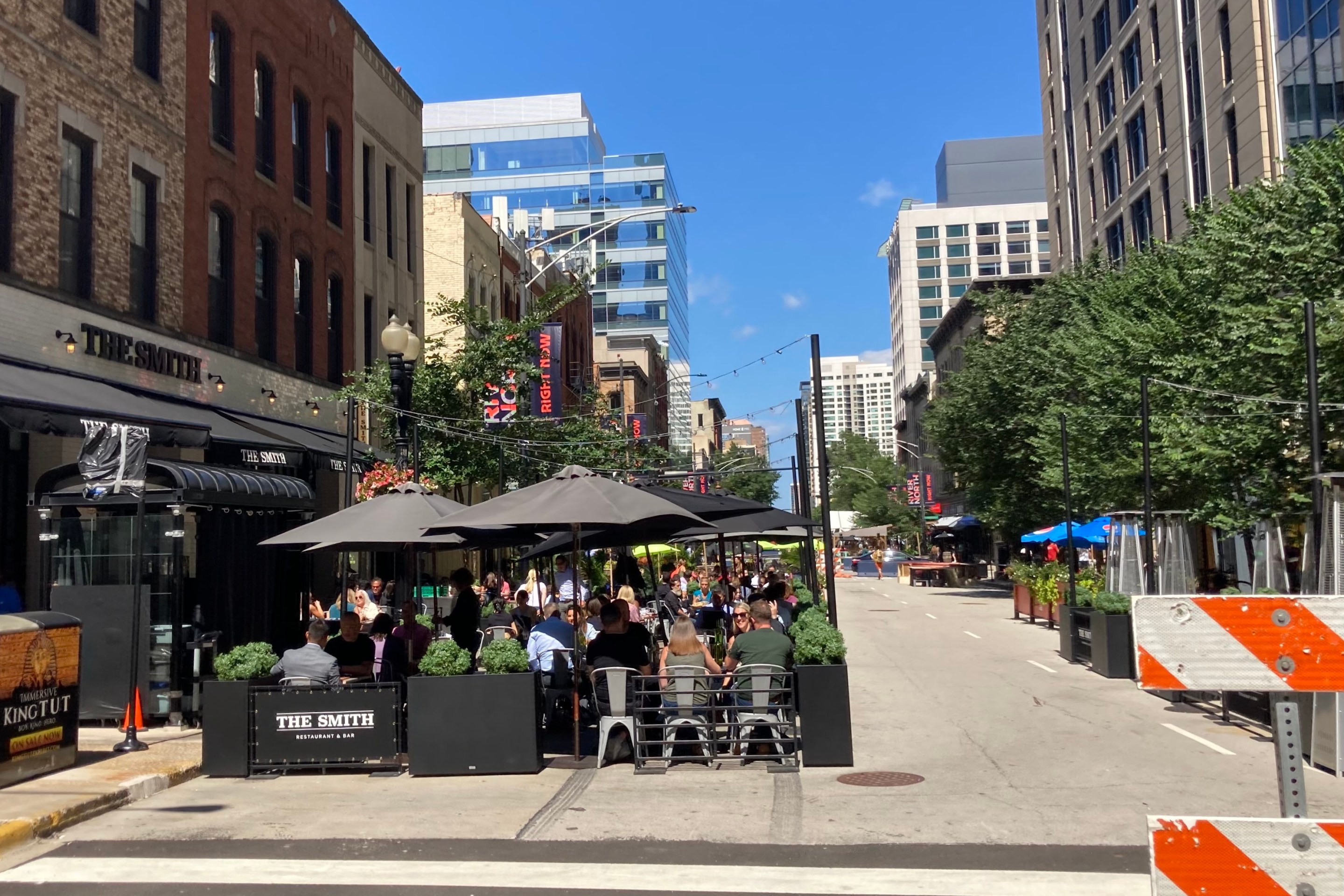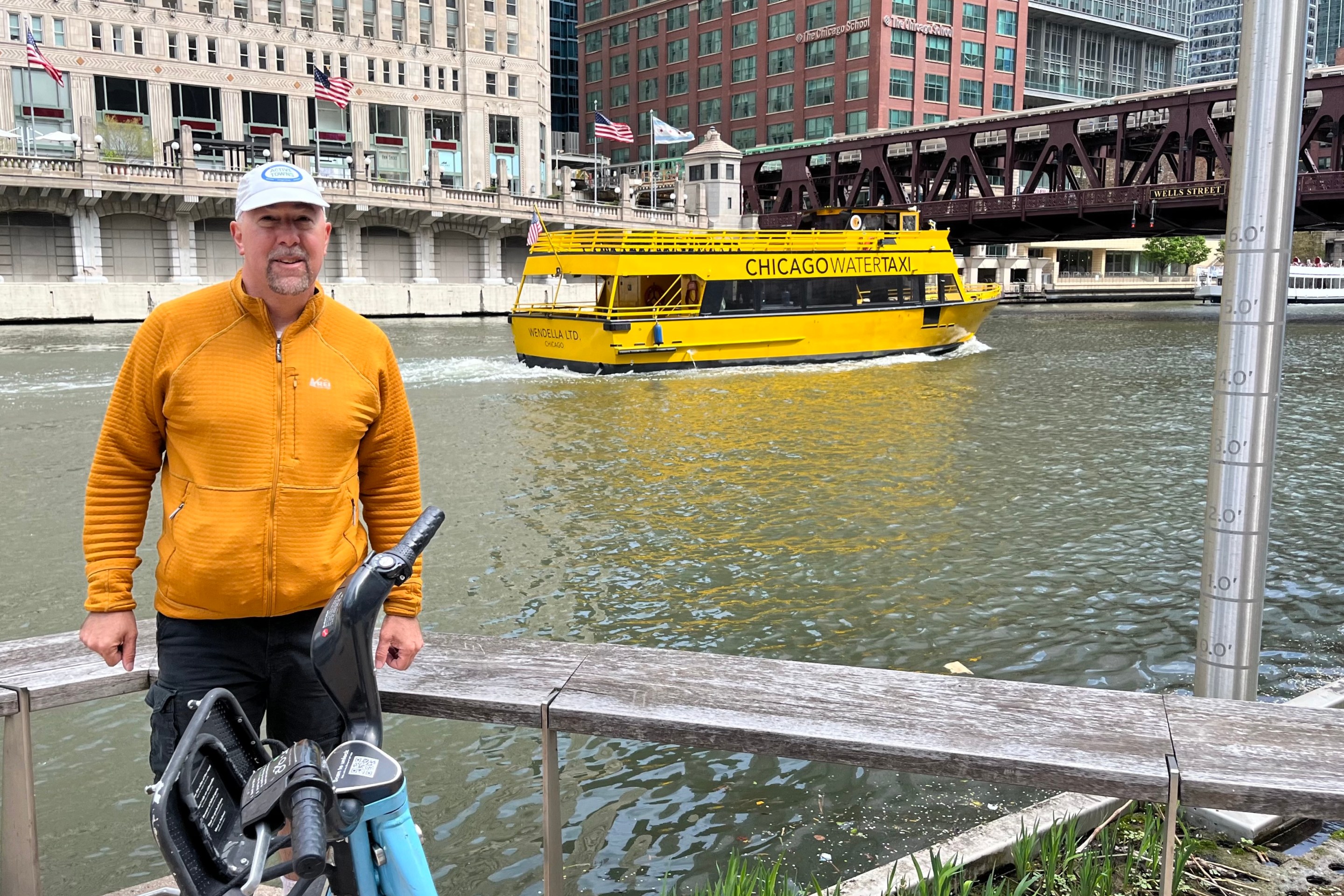Once again Chicago leads the way, passing a tax to help get Uber and Lyft under control
4:10 PM CST on November 26, 2019
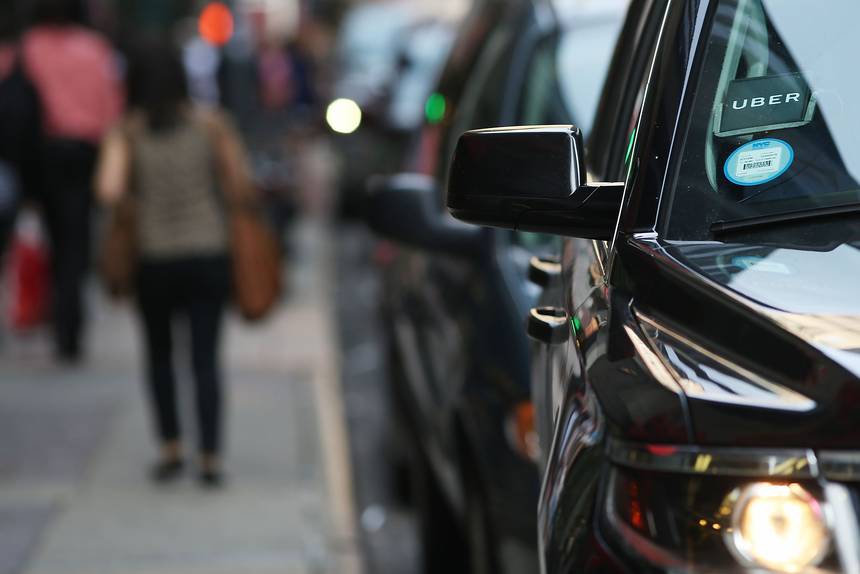

Back in 2017 Chicago was the first major U.S. city to pass a tax on ride-hail to fund transit infrastructure, paving the way for peer cities to follow suit. Today we pioneered another initiative to help mitigate the harmful effects of Uber and Lyft on urban transportation, with a new fee structure designed to convert more solo trips to shared ones and boost CTA ridership, which is also likely to set a precedent for other towns. The City Council passed Mayor Lori Lightfoot's $11.65 billion budget, including the new ride-hail tax, by a 39 to 11 margin, with several aldermen referring to it as a sensible and progressive measure.
Currently Chicago has a flat total tax of $0.72 per Uber or Lyft trip, whether it's a blue-collar worker taking an Uber Pool ride home from their local 'L' station at 3 a.m., or a CEO taking a traffic-clogging private trip many miles downtown during the morning rush. Under the new system, the tax on a shared ride in the neighborhoods drops to $0.65, while the fee on a private one goes up to $1.25. Downtown shared trips during peak hours (weekdays from 6 a.m. to 10 p.m.) will be taxed at $1.25, while private downtown peak-hour trips will be assigned a full $3 fee.
The new structure should encourage more people to take advantage of already-cheaper Uber Pool and Lyft Line rates instead of taking private trips by providing a $0.60 tax savings in the neighborhoods. It should also make many people think twice about using ride-hail downtown, where there are plentiful transit options. That should ease congestion, speed up bus service, boost CTA ridership, and help prevent service cuts and fare hikes due to ride-hail cannibalizing transit use. The new tax is projected to raise $40 million a year, with most of that going to plug Chicago's $838 million budget hole, but $2 million earmarked for projects to improve bus service, such as dedicated lanes.
Needless to say, the ride-hail companies, particularly Uber, fought Lightfoot's initiative tooth-and-nail. Their main strategy was to argue that the new fees would disproportionately impact poor and working people on the South and West sides, with Uber enlisting 35 Black ministers to bolster their claim that the tax would hurt African Americans. (Last spring all 35 clergy members helped the corporation make the same argument about the city's deal with Lyft to expand the Divvy bike-share system citywide, part of a propaganda campaign that also involved Uber buying sympathetic news coverage in local Black media.) For example, Reverend William Hall claimed that the mayor's plan would "balance the budget on the backs of low-income communities.”
However, numbers from a recent city of Chicago report on ride-hail data show that won't be the case. As it stands, most trips hailed on the South and West sides are shared, non-downtown trips, which will be cheaper under the new structure, while 70 percent of rides requested downtown and on the more affluent North Side are private. Therefore, as you can see from the map below by the Center for Neighborhood Technology, the vast amount of the new revenue will come from higher-income communities. Meanwhile, lower-income Chicagoans, who are more likely to depend on transit, particularly buses, will disproportionately benefit from the enhanced CTA service.
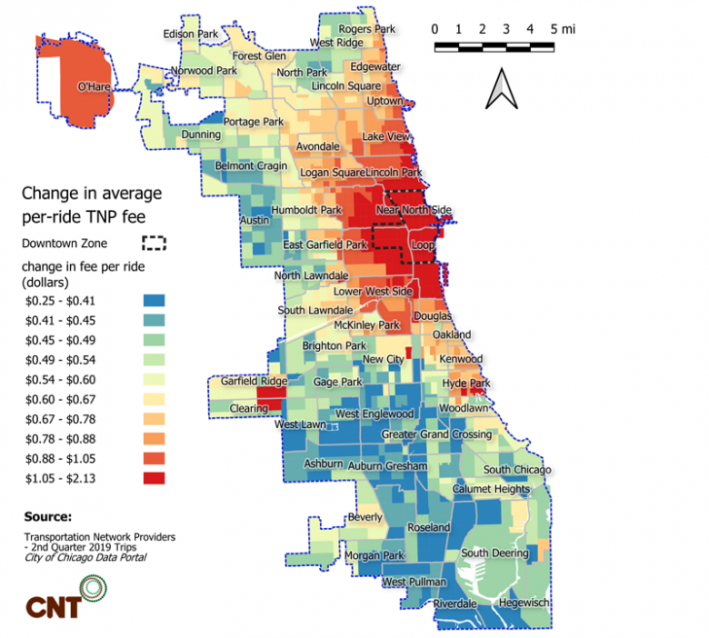
As such, several transportation advocates of color who prioritize racial justice told me they were in favor of the fee structure (although some said they would like to see more of the revenue go towards transit, particularly in Black and Brown communities.) "We applaud Mayor Lightfoot moving us toward a more equitable [ride-hail] tax," said Christian Mariano Diaz of the Logan Square Neighborhood Association, which fights housing displacement.
"People have definitely been getting misinformation from the pastors who are Uber supporters," said Leslé Honoré, director of Washington Park-based KLEO Community Family Life Center, which focuses on violence prevention through strengthening families. "So helping our clients understand that was inaccurate and showing them the data from the city has been really important.”
A New Yorker who gave me a heads-up that Uber was sending its two top NYC PR flacks to our city told me that the two staffers "don't give a s--- about poor people in Chicago." In any case, the company's hypocrisy in claiming that its main opposition to Lightfoot's plan was social justice, when its primary concern was its own bottom line, was laid bare today. A Reuters analysis of Chicago ride-hail data published this morning revealed that during the past year Uber quietly raised the fares on UberPool rides, which are disproportionately taken by lower-income residents, significantly, while private UberX fares stayed flat.
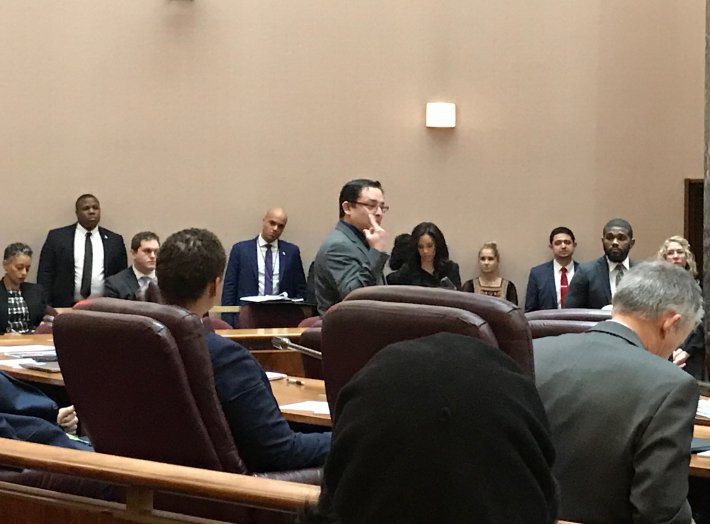
During the speeches by aldermen at today's Council meeting, a few of the politicians who mentioned the ride-hail tax plan praised it as a smart, forward-thing measure. Michael Rodriguez (22nd) called it "equitable," Leslie Hairston (5th) described it as a "progressive measure," and Scott Waguespack (32nd) said it would "make ride-hail pay its fair share and also reduce congestion in the Central Business District."
Aldermen who spoke out against the new fees included Andre Vasquez (40th) and Raymond Lopez (15). Lopez grandstanded against the plan at a Finance committee hearing last week, arguing that the city should have instead accepted an Uber counterproposal that would have generally lowered the fees, and therefore had little impact on congestion but was somehow supposed to simultaneously raise an extra $10 million.
After the meeting, Lincoln Square alderman Matt Martin (47th), who voted against Lightfoot's budget, told me he still supported the ride-hail fees, which he called a good first move towards addressing traffic jams. "I think it's a step in the right direction when you look at our revenue issues and getting the conversation going around congestion. Part of what it pays for is a broader congestion [pricing] study, which we need to look at, not just ride-share but [private cars] and trucks vehicles in the larger central business district as well."
Streetsblog Chicago published about a dozen articles on the ride-hail tax, including debunking every single ill-informed or misleading op-ed and editorial in the mainstream media claiming that the measure would hurt poor people or wreck the local economy, so I'd like to think that we made a significant difference in getting the initiative approved. If you appreciate our advocacy on the issue, please consider clicking the link below and donating to help us win a $50,000 challenge grant from the Chicago Community Trust so that we can keep doing this work next year. Thanks for your support.

In addition to editing Streetsblog Chicago, John writes about transportation and other topics for additional local publications. A Chicagoan since 1989, he enjoys exploring the city on foot, bike, bus, and 'L' train.
Stay in touch
Sign up for our free newsletter
More from Streetsblog Chicago
Service boost means BNSF Line will get Metra’s first-ever across-the-board weekend schedule, starting April 29
In addition, Halsted Street station will get weekend service, and Downers Grove's Fairview stop will become an off-peak stop.
Today’s Headlines for Friday, April 19
Tasty news: Friedman Properties is trying to break the Clark outdoor dining stalemate by applying for street closure permits
Mayor Johnson's administration and Ald. Reilly haven't yet found common ground on bringing back the popular car-free zone. Will this make the difference?
Today’s Headlines for Thursday, April 18
Roger that! Streetsblog SF editor Roger Rudick offers constructive criticism of Chicago’s downtown bike network
"There were blocks that felt very safe and very secure," he said. "But then you're immediately – voom! – disgorged into three lanes of moving traffic with no protection."
